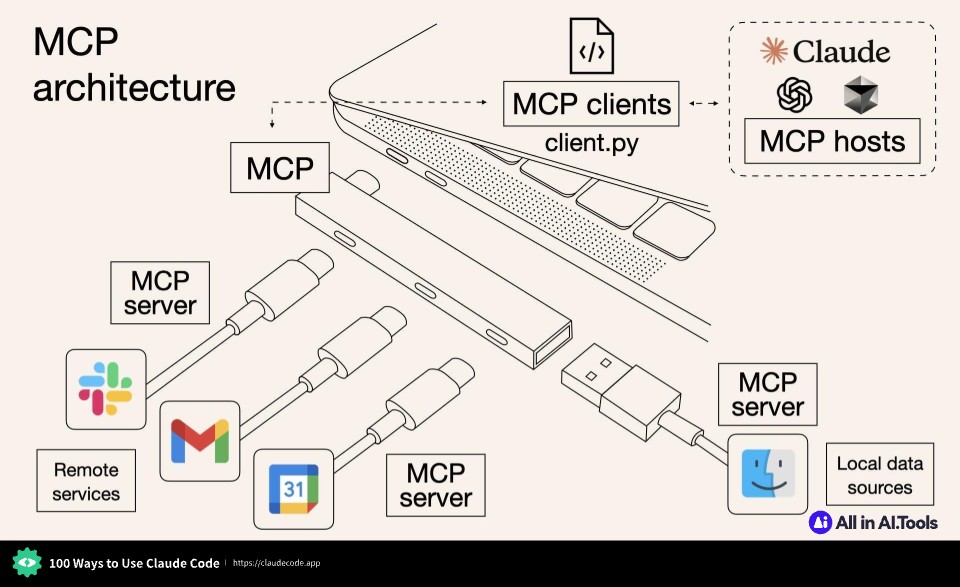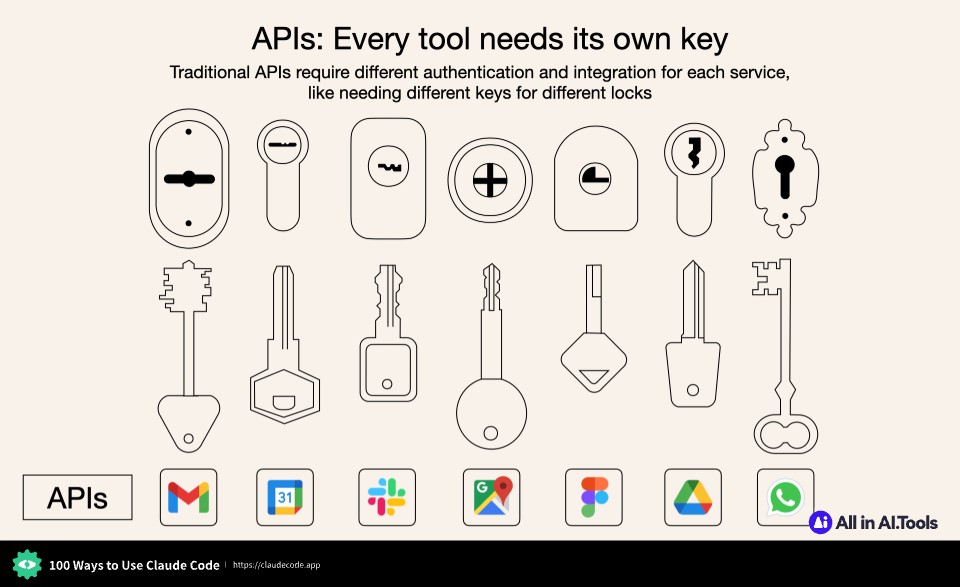Discover and integrate MCP servers to extend Claude's capabilities
A Model Context Protocol server that provides access to CoinMarketCap's cryptocurrency data. This server enables AI-powered applications to retrieve cryptocurrency listings, quotes, and detailed information about various coins.
Dappier MCP server connects any AI to proprietary, real-time data — including web search, news, sports, stock market data, and premium publisher content.
A Model Context Protocol (MCP) server implementation connecting Claude Desktop with DeepSeek's language models (R1/V3)
A MCP provider Deepseek reasoning content to MCP-enabled AI Clients, like Claude Desktop. Supports access to Deepseek's CoT from the Deepseek API service or a local Ollama server.
Model Context Protocol (MCP) for interacting with dicom servers (PACS etc.)
TS based companion MCP server for the Drupal MCP module that works with the STDIO transport.
An MCP service designed for deploying HTML content to EdgeOne Pages and obtaining an accessible public URL.
MCP server that provides LLM with tools for interacting with EVM networks
A Model Context Protocol server for Excel file manipulation
A Model Context Protocol (MCP) server for interacting with Ghost CMS through LLM interfaces like Claude. Allow you to control your Ghost blog by simply asking Claude etc.
MCP (Model Context Protocol) server for the Contentful Management API
Universal database MCP server connecting to MySQL, PostgreSQL, SQL Server, MariaDB, SQLite.
Model Context Protocol server for DeepSeek's advanced language models
A Model Context Protocol (MCP) server for the Discord integration with MCP-compatible applications like Claude Desktop.
Model Context Protocol server for Flight Tracking
GitHub Actions Model Context Protocol Server
Providing real-time and historical Crypto Fear & Greed Index data
A mcp server that bridges Dune Analytics data to AI agents.
A Model Context Protocol (MCP) server implementation that provides Elasticsearch and OpenSearch interaction.
Official Firecrawl MCP Server - Adds powerful web scraping to Cursor, Claude and any other LLM clients.
Tools for seamless integration of different systems and services.
Cloud infrastructure and deployment management tools.
AI-powered tools for creative design workflows across 3D and 2D mediums.
AI-powered tools for product development, design review, and performance monitoring.
Tools for monitoring, analytics, and operational efficiency.


Explore Claude Cowork, Anthropic's groundbreaking AI agent built on Claude Code foundations. Discover how it enables file access, document creation, and task automation for everyone—not just developers. Learn how it integrates with MCP servers and extends Claude Code capabilities.
Explore the major [Claude code](https://claudecode.app) 2.1.1 update featuring 109 CLI improvements, automatic hot reload for skills, sub-agent execution, enhanced security, performance optimizations, and smarter prompt behavior. Learn about all the new features and improvements.
Master the art of prompting Claude with Anthropic official guide. Learn 10 proven strategies to 10x your Claude Opus and Sonnet 4.5 performance. Discover how better prompts lead to better results with practical examples and real-world applications.
Deep dive into sophisticated SSH workflows for Claude Code power users. Learn zero-friction authentication, session management, and advanced techniques that transform your vibe coding experience.
MCP (Model Context Protocol) is an open protocol that standardizes how applications provide context to LLMs. Think of MCP like a USB-C port for AI applications, providing a standardized way to connect AI models to different data sources and tools.
MCP Servers are lightweight programs that expose specific capabilities through the standardized Model Context Protocol. They act as bridges between LLMs like Claude and various data sources or services, allowing secure access to files, databases, APIs, and other resources.
MCP Servers follow a client-server architecture where a host application (like Claude Desktop) connects to multiple servers. Each server provides specific functionality through standardized endpoints and protocols, enabling Claude to access data and perform actions through the standardized protocol.
Yes, MCP Servers are designed with security in mind. They run locally with explicit configuration and permissions, require user approval for actions, and include built-in security features to prevent unauthorized access and ensure data privacy.